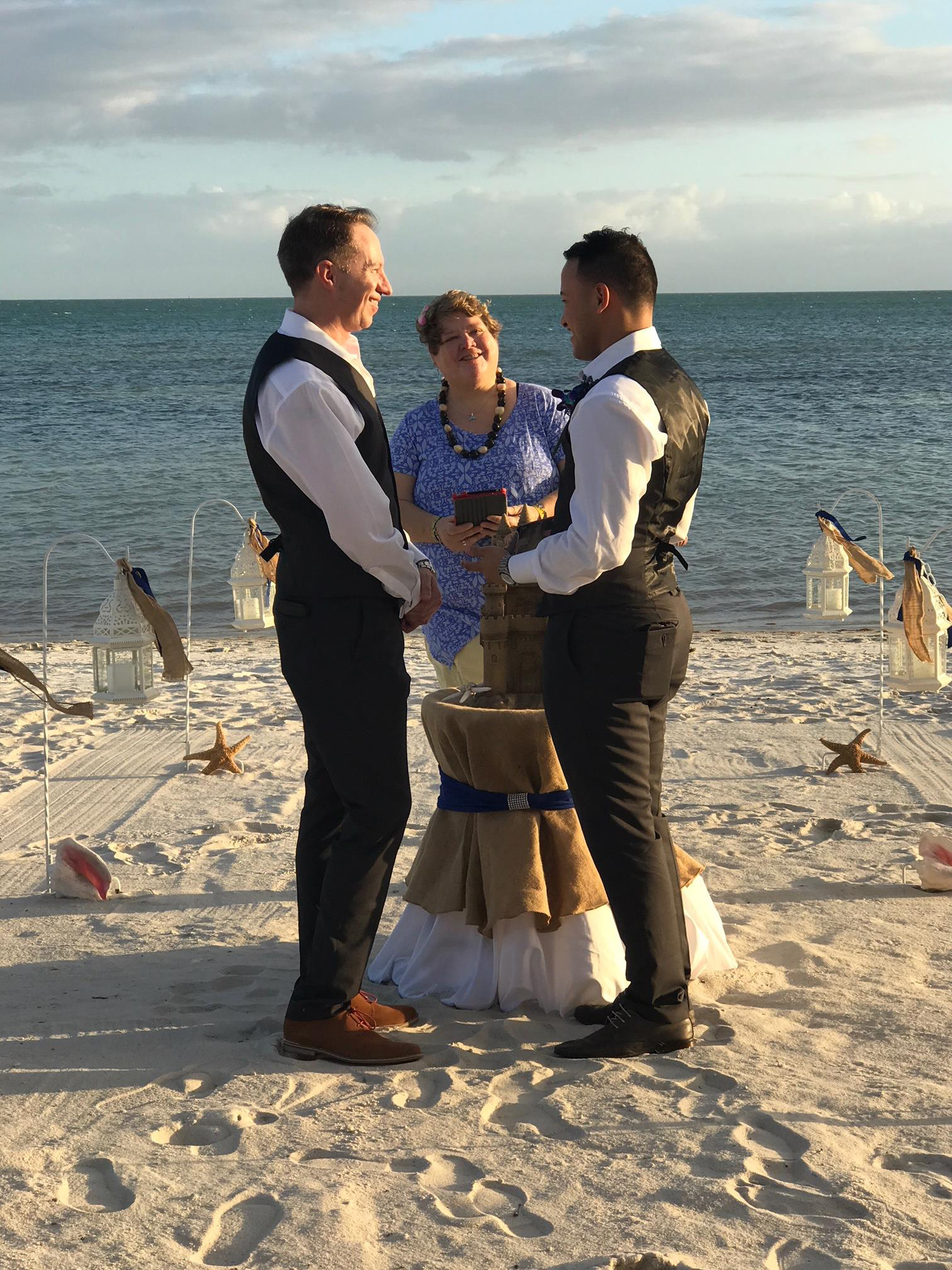US Army chaplain fighting husband's deportation to Honduras
A U.S. Army chaplain is fighting his husband's deportation to Honduras
An Army chaplain is fighting to keep his husband in the United States after U.S. Immigration and Customs Enforcement (ICE) targeted him for deportation to Honduras last month.
Chaplain Tim Brown, who has done two tours in Afghanistan, married Sergio Avila in January 2017. The pair met three years ago and still joke about who asked the other for a phone number, Brown told ABC News during a phone interview on Tuesday.
After getting married, Brown said the couple started the immigration process, filing paperwork for a marriage exception that would address Avila's immigration status.
Avila immigrated unlawfully to the U.S. with his uncle when he was just seven years old.

He encountered ICE agents last month during a meeting at the Raleigh U.S. Citizenship and Immigration Services office where the couple was granted the marriage exception, Brown said.
That day, Avila was told to report to an immigration court on May 10 where he was unexpectedly taken into ICE custody at the Stewart Detention Center in Lumpkin, Georgia "due to his status as an immigration fugitive and convicted criminal alien," according to a statement from ICE.
In 2001, Avila was caught by U.S. Border Patrol attempting to enter the U.S. illegally near Rio Grande City, Texas. He was ordered to be removed from the country by a federal immigration judge in 2002, ICE said. Then in 2015, Avila was convicted for driving while intoxicated in Durham County, North Carolina.
The outstanding detention order trumped the marriage exception.
But Brown told ABC News that Avila's detention was a complete surprise because, during the encounter with ICE in April, the agents thanked Brown for his service and told him they wouldn't detain the spouse of a military service member. Additionally, the couple had just been granted the marriage exception.
Avila was ultimately released from ICE's custody on Monday while the immigration court considers an appeal filed on his behalf, an ICE spokesman told ABC News.

If Avila were to be deported back to Honduras, Brown said he would fear for his safety because the country is not supportive of the LGBT community.
"I'm scared," Brown said Avila told him during a phone call shortly after he was detained.
"It's challenging, it's fearful," Brown told ABC News.
Brown served as a Baptist minister for 15 years before joining the Army and has since received two Bronze Stars and completed two tours in Afghanistan. He said he has also served in Qatar, Jordan, and Bahrain.
"After 9/11, it was something I was just thrilled to do," Brown said, adding, "I just felt like it was a place where I could really do something."

"U.S. Immigration and Customs Enforcement (ICE) respects the service and sacrifice of those in the military and the families who support them and is very deliberate in its review of cases associated with veterans and active-duty service members," ICE said in a statement in response to media inquiries on Monday.
The agency emphasized that 92 percent of all people arrested by ICE in Fiscal Year 2017 "either had a criminal conviction, a pending criminal charge, or were already subject to a removal order issued by a federal immigration judge."
"Foreign nationals illegally present in the United States are generally not eligible to adjust status through marriage without first leaving the United States," the statement continued.
Brown expressed frustration in the general lack of understanding about the U.S. immigration process and said he wants to continue shedding light on what he called the "broken" system.
At the same time, Brown is grateful he has the resources, time, and energy to fight for Avila's case.
"Unless you have energy to burn at both ends, the ability to function on very little sleep and food, and a purpose-driven appetite, we wouldn't have gotten here," he said.
He worries about other people going through similar situations who don't have the same advantages he does.
In the wake of Avila's detention, Brown launched a targeted social media and letter writing campaign to catch the attention of lawmakers, media, and advocacy groups.
For now, he said he believes Avila will not be deported.
"But there's always that chance given what happened," Brown said.




